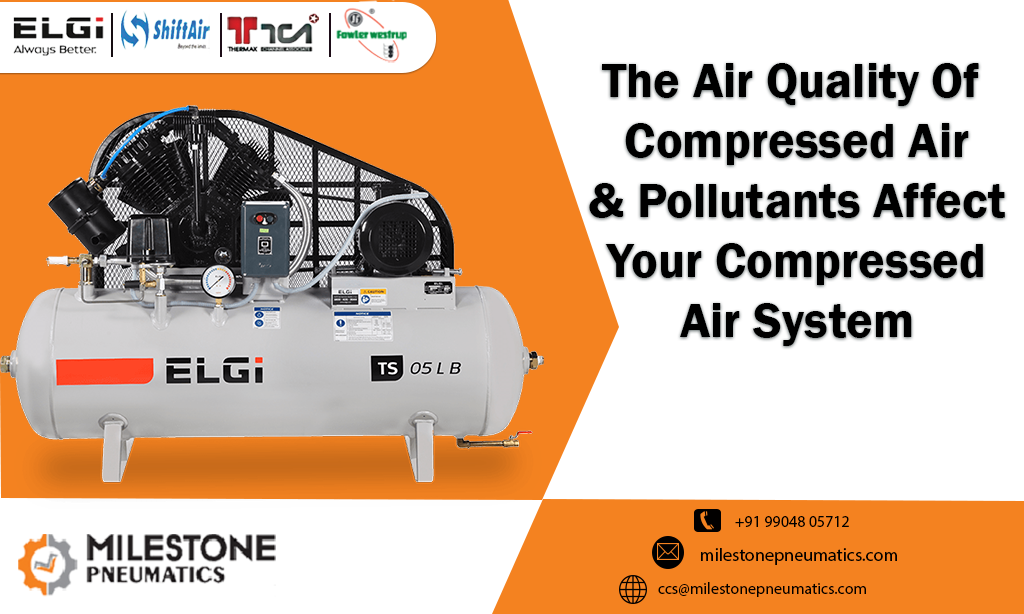It is very important for the user that the compressed air is of proper quality. If air containing contaminants is exposed to the final product, rejection costs can quickly increase unacceptably and the cheapest solution can quickly become the most expensive. You must choose compressed air quality to suit the company’s quality policy and also try to evaluate future needs.
Why is it important to pay attention to air quality?
Compressed air may contain undesirable substances such as water droplets or vapor, oil and dust droplets, or aerosols. Depending on the area of use of compressed air, these substances can weaken production results and even increase costs.
When the role of compressed air in the process is clearly defined, it is easy to find a system that will be most profitable and efficient in a particular situation. Among other things, it is a question of finding out whether compressed air comes in direct contact with the product or whether, for example, oil mist can be accepted in the working environment. A systematic method is required to select the right tools.
Compressed air systems are a reliable alternative providing the stable, constant flow of air and non-heat generating power required for many large-scale production and industrial applications for improved production efficiency. Compressed air systems are so important in these demanding large industrial and manufacturing applications that they are often considered the equivalent value of water, electricity, and gas.
Major pollutants affecting the compressed air system:
Oil Vapor in Compressed Air
Like water vapor, the surrounding air contains oil in the form of hydrocarbons that can be sucked into an air compressor Like water, oil vapor also condenses in the system as it cools and will only increase pollution in the compressed air.
Liquid Oil & Oil Aerosol
Many air compressors use oils for lubrication, sealing, and cooling during the process. The oil in a lubricated compressor is part of the compression process and is contained in the compressed air in whole or in part as liquid oil or oil aerosols.
All of the above air pollutants, when combined, form an acidic condensate that damages the storage and distribution of compressed air systems. These air pollutants can also adversely affect plant equipment and products that come into contact with polluted air.
Bacteria and Viruses
Atmospheric air contains millions of microorganisms, such as bacteria and viruses, which, if introduced into a sterile production environment, can adversely affect product quality and production costs.
Rust
Compressed air systems that do not have adequate cleaning filters and which were operated with wet pipes before cleaning may encounter rust and pipe deposits in the air receiver. These defects can damage equipment and even cause disruptions that may adversely affect the final product.
If you need help analyzing which compressor system is right for you,
please contact us at 079-29683107 / +91 99048 05712.
Or visit site https://milestonepneumatics.com/





